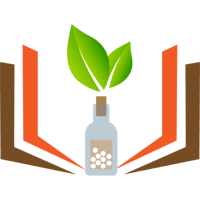JOHN HALL., M. D.
The writer does not consider himself as much of a surgeon, or that he had had a large experience in the treatment of syphilitic diseases, for it is well known that any noise made about such maladies effectually daters many from consulting us for other conditions, fearing, as they often do, if being classed among them; consequently, a large number thus suffering keep away, making our practice limited. Still, the disease must be met and treated, sometimes in its most virulent form, demanding the ablest skill of our very best men to do so successfully.
One poor fellow, who fell under my case, was taken down with a phagdenic chancre, of which he was so ashamed and ignorant, as to hope that it might get well of itself, allowing the disease to proceed, which it did, so rapidly that when first seen, the organ on which it was located was almost destroyed, requiring two eminent surgeons to patch up, as best they could, the serious consequences. So, that taking this as an extreme case, the calling of attention to this subject is especially appropriate.
Some time since, Ricord stated before his class, that, “he would not consent to have the smallest chancre on his organ for the largest fortune which could be offered him, as an inducement,” which, if true, a remark that can be fully confirmed, given us by the leading physician of that time in Europe, stating his inability to treat or cope with this malady successfully; that the primary abrasion is as like to be followed by secondary and tertiary symptoms, descending even treatment had been resorted to. The opinion of this great man may be taken as a fair experience of his school, whose sentiments we shall not here enlarge upon.
The question is this: Can our Homoeopathic school do better? We can not doubt there being great diversity of opinion and practice on this question, even among us; some even asserting; that he was ignorant of the distinction between an indurated and phagdenic chancre-deeming both conditions alike- which our more elaborate researches in diagnosis have made clear.
But whatever view we take of them, the treatment is still the problem. Leaving, then, gonorrhoea for a future consideration, we have this query: Is syphilitic poisoning subject or amenable to homoeopathic treatment, so that the subsequent symptoms may be safely and fully removed in such degree that no after consequences can follows?.
The writer, as before said, has only a limited experience to draw from, but from what is there revealed, he is inclined to think that the infection after a hard chancre-which may be two or three weeks in developing-that is, before any ulcer appears, whereby such disease can be recognized, should be imitated by the medicines in this respect, they requiring the same time for their action before repetition; while a soft or phagdenic one, often after two or three days’ exposure, requires a very speedy repetition of the remedy; an observation which has been confirmed to the author several times since the higher potencies have been used.
The object of this brief paper is to concentrate the knowledge of able men on this subject, enabling us more rapidly to find the true remedy for each case, which cannot be very difficult in the primary state, seeing that they do not greatly diverge.

